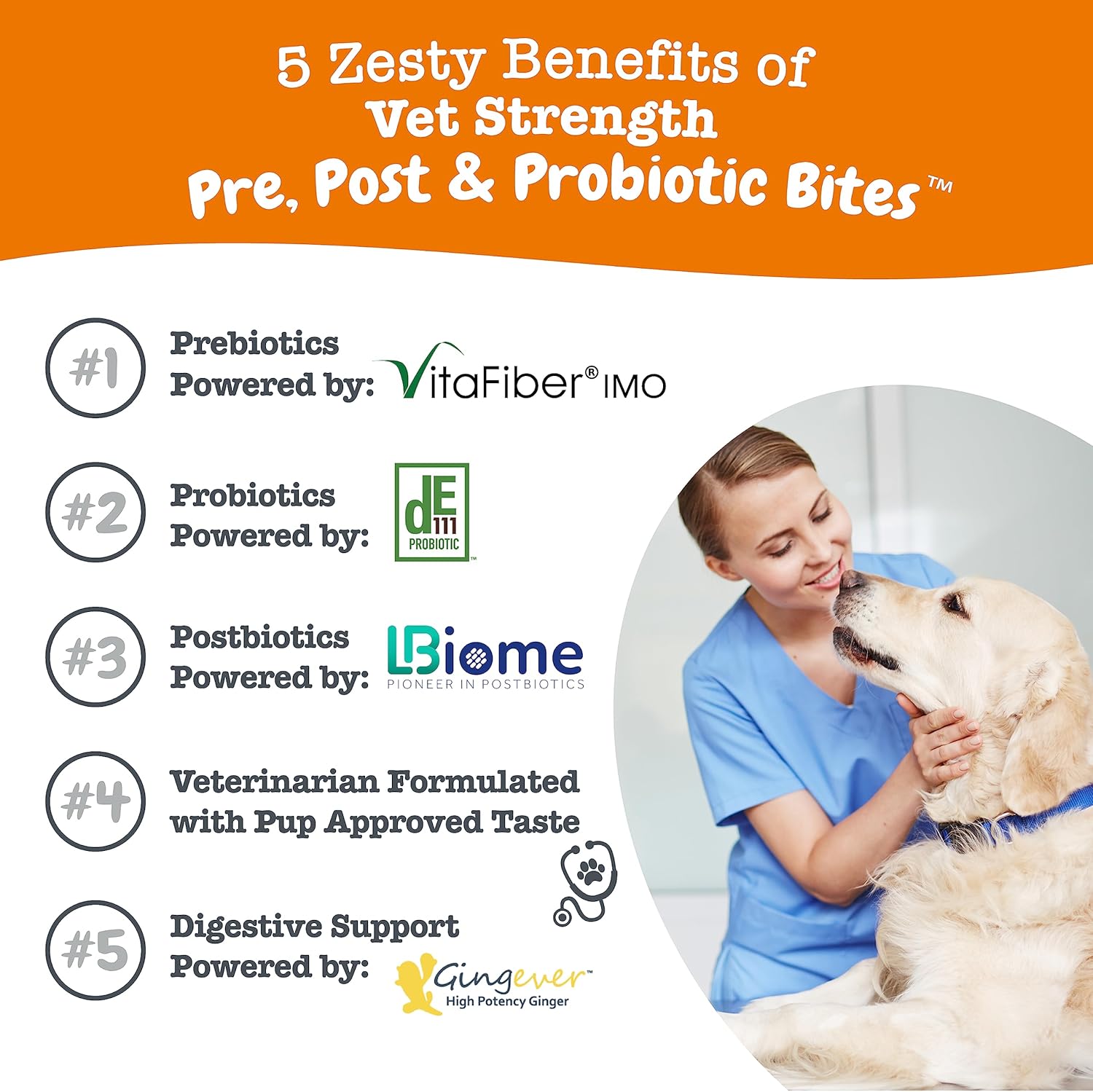








The Ultimate Guide to Dog Digestive Health Supplements: Enhance Your Pup’s Well-Being
Maintaining your dog’s digestive health is essential for their overall wellness. With a myriad of options available in the market, it can be overwhelming to choose the right supplement for your furry friend. This comprehensive guide covers everything you need to know about dog digestive health supplements, focusing on their benefits, ingredients, and how to choose the best one for your pet.
What Are Dog Digestive Health Supplements?
Dog digestive health supplements are specially formulated products designed to support the digestion and nutrient absorption in dogs. These supplements often contain probiotics, prebiotics, and digestive enzymes that promote a healthy gut and enhance your dog’s immune system.
Why Are Digestive Health Supplements Important?
Promoting Gut Health
Healthy digestion is critical for dogs. A balanced gut promotes better nutrient absorption, enhances energy levels, and reduces the risk of various gastrointestinal disorders.
Supporting Immune Function
A large part of a dog’s immune system resides in their gut. Supporting gut health can bolster your dog’s immune function, making them less susceptible to infections and illnesses.
Preventing Digestive Issues
Digestive issues such as diarrhea, constipation, and bloating can lead to discomfort for your pet. Regular use of digestive supplements can help prevent these problems by maintaining a balanced gut flora.
Essential Ingredients to Look For
When selecting a digestive health supplement, ensure it contains the following key ingredients:
1. Probiotics
Probiotics are beneficial bacteria that aid digestion and help maintain a healthy balance of gut flora. Look for supplements with strains like Lactobacillus acidophilus and Bacillus subtilis (DE111).
2. Prebiotics
Prebiotics are dietary fibers that feed probiotics, promoting their growth. Ingredients like inulin and VitaFiber are excellent sources of prebiotics.
3. Digestive Enzymes
Digestive enzymes such as amylase, protease, and bromelain are essential for breaking down food components, aiding in digestion.
4. Ginger Extract
Ginger is known for its ability to alleviate gastrointestinal discomfort. Including ginger extract in a supplement can enhance digestive motility.
5. LBiome
LBiome is known for supporting gut health and protecting the bowel’s protective layers. It plays a crucial role in maintaining overall digestive wellbeing.
How to Choose the Right Digestive Health Supplement?
Identify Your Dog’s Needs
Every dog is different. Assess their specific health issues, activity levels, and dietary needs before choosing a supplement.
Read the Label Carefully
Ensure that the supplements are formulated specifically for dogs and include high-quality ingredients without artificial additives or fillers.
Consult Your Veterinarian
Before introducing any new supplement into your dog’s diet, consult with your veterinarian. They can recommend suitable options based on your dog’s health status.
Administering Digestive Health Supplements
How Can You Utilize Chews Effectively?
Soft chews are popular for their palatability. Administer them as a treat or mix them with dog food to ensure your pup receives the full benefits.
What if Your Dog is Selective About Food?
If your pet is picky, consider powders or liquids that can be easily mixed with their food. Use positive reinforcement to encourage them to consume the supplement.
What Are the Pros and Cons of Digestive Health Supplements?
Pros
- Enhanced Digestive Health: Regular use can lead to improved digestion and nutrient absorption.
- Increased Immune Support: They can bolster your pet’s immune system.
- Easier Administration: Many come in palatable forms, making them easy to give.
Cons
- Cost: Quality supplements may be more expensive than other options.
- Variable Effectiveness: Results can vary between individual dogs due to different digestive health statuses.
- Potential Allergens: Some dogs may be sensitive to specific ingredients; always check the ingredients list.
Common Digestive Issues in Dogs and Their Symptoms
1. Diarrhea
Loose or watery stools can be caused by dietary changes, infections, or parasites.
2. Constipation
Difficulty in passing stools may result from low fiber intake or dehydration.
3. Bloating
An uncomfortable, distended abdomen often indicates more severe gastrointestinal issues and requires immediate attention.
How Do You Know If Your Dog Needs Digestive Supplements?
If your dog experiences recurrent digestive issues, such as diarrhea, bloating, or constipation, it may be time to consider a digestive health supplement. Additionally, if your pup is aging or has undergone surgery, they may benefit from extra digestive support.
Are There Any Side Effects?
Generally, well-formulated dog digestive health supplements have minimal side effects. However, some dogs may experience mild gastrointestinal upset when starting new supplements. Gradually introduce the supplement to their diet to lessen this risk.
Conclusion
Investing in your dog’s digestive health can have far-reaching benefits for their overall well-being. By choosing the right supplements that include essential ingredients like probiotics, prebiotics, and digestive enzymes, you can help your furry friend thrive. Remember to consult with your veterinarian to tailor the best plan for your dog’s individual needs.
FAQs
1. Can I give my dog human digestive supplements?
No, human supplements are not formulated for dogs and may contain ingredients that are harmful to them.
2. How long does it take to see results from digestive supplements?
Results can vary, but you may notice improvements within a few days to weeks of consistent use.
3. Are there natural sources for probiotics for dogs?
Yes, fermented foods such as plain yogurt and kefir can be beneficial, but ensure they’re safe for dogs.
4. Can puppies take digestive health supplements?
Yes, but consult with your veterinarian to ensure it’s appropriate for their age and health condition.
5. Are some dogs more likely to need digestive supplements than others?
Yes, breeds prone to digestive issues, older dogs, and those with existing health conditions may benefit more from these supplements.








